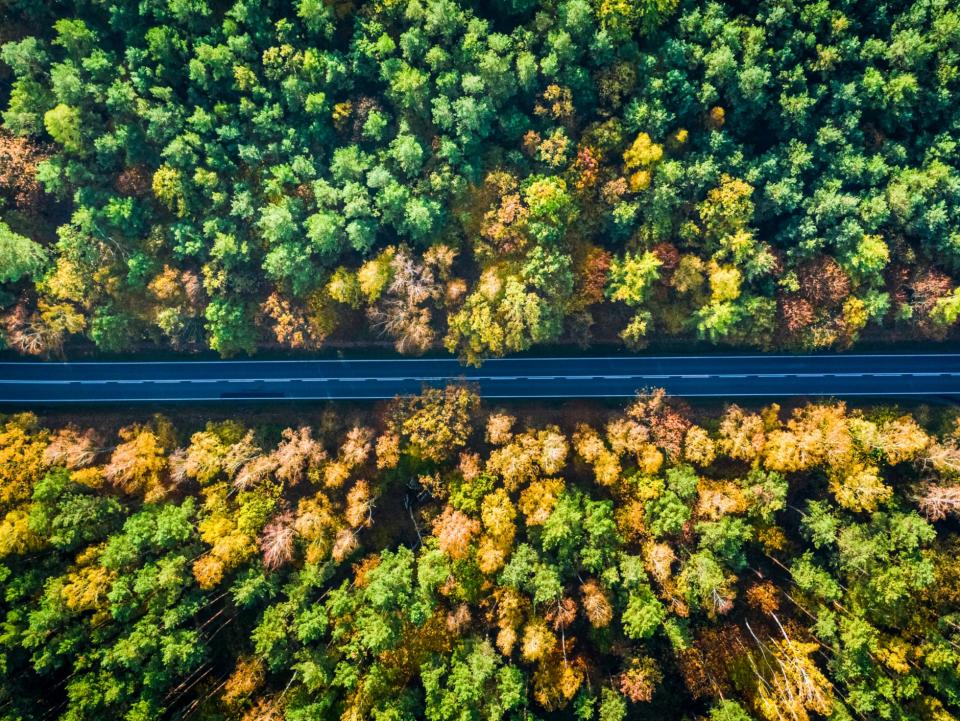Governments are ‘hiding behind’ tree-planting and unproven carbon removal instead of cutting fossil fuels

Governments around the world are “hiding behind unreliable, unproven and unrealistic carbon removal schemes” and failing to meaningfully cut use of fossil fuels, a damning new assessment has warned.
The sudden rush to adopt so-called “net zero” targets has not been met with sufficient action to bring down fossil fuel usage, and instead is dependent on offsetting carbon, either through planting trees, or through as yet unproven carbon capture and storage technology, the report from Oxfam warns.
In order to prevent catastrophic damage and keep average temperatures below 1.5C since the pre-industrial era, as set out by the 2015 Paris climate agreement, the world collectively needs to be on track to reduce greenhouse gas emissions by 45 per cent by 2030 from 2010 levels.
However, countries’ current plans to cut emissions are nowhere near, adding up to around just a 1 per cent reduction in global emissions by 2030 according to Oxfam.
Even ahead of the Cop26 climate summit later this year the UK government is still considering opening new coal mines and oil fields. The report noted that the proposed Cambo North Sea oilfield near Shetland would need forest the size of England to offset emissions.
The oilfield is projected to operate until 2050, and though initial plans could produce up to 170 million barrels of oil, the oilfield has the potential to produce up to 255 million barrels which would release an estimated 132 million tonnes of CO2 emissions.
Danny Sriskandarajah, chief executive of Oxfam GB, said: “Too many companies and governments are hiding behind the smokescreen of ‘net zero’ to continue dirty business-as-usual activities.
“A prime example of the doublethink we are seeing is the oil and gas sector trying to justify its ongoing extraction of fossil fuels by promising unrealistic carbon removal schemes that require ludicrous amounts of land.
“Net zero targets are vital to tackling climate change. Some governments and companies are taking bold action to cut carbon emissions but there are currently too few to give us a realistic chance of averting climate catastrophe and the widespread hunger and devastation that come with it.”

The organisation is calling on the British government to halt explorative drilling in the North Sea and urged the Scottish government to put pressure on Westminster.
“The UK government needs to be a credible broker for a deal that can stop the planet overheating when it hosts the Cop26 climate talks in November – so it is imperative that it stops licensing new oil and gas in the North Sea, including a possible new oilfield near the Shetland Islands.”
In the run-up to the Cop26 climate summit in Glasgow, more than 120 countries, including the world’s top three emitters – the US, China and the EU – have pledged to reach “net zero” emissions by mid-century, but Oxfam said “most of these pledges are vague and not backed by measurable plans”.
The report highlighted how even small countries such as Switzerland could need land nearly equivalent to the entire island of Puerto Rico to plant enough trees to meet its net zero target. Switzerland has recently struck carbon-offsetting deals with Peru and Ghana.
Meanwhile, Colombia has a net zero target that requires reforesting over one million hectares of land by 2030, even though rates of deforestation in the country continue to climb.
Mr Sriskandarajah said: “Land is a finite and precious resource that millions of small-scale farmers and Indigenous people depend upon to feed their families.
“Nature and land-based carbon removal schemes are an important part of the mix to lower emissions but more caution is needed to ensure good stewardship that doesn’t threaten food security.”
Read More
August heatwave 2021: Temperatures set to soar in UK, long range Met Office forecast suggests
Can ‘sponge’ pavement save us from urban flash floods?
Everyday shopping from brands like Heinz and Yakult helps destroy rainforests, report claims
China and India miss UN deadline to update emissions targets
Mudslides force more than 100 people to spend night on highway in Colorado
Climate crisis could kill 83 million people by 2100, study finds

 Yahoo News
Yahoo News 
